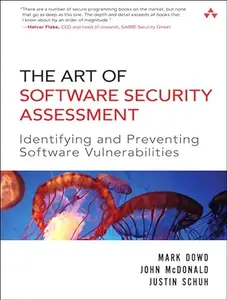The Art of Computer Programming Volume 4
The Art of Computer Programming, Volume 4, Fascicle 5 eBooks & eLearning
Posted by hill0 at June 6, 2022
The Art of Computer Programming, Volume 4, Fascicle 5:
Mathematical Preliminaries Redux; Introduction to Backtracking; Dancing Links
English | 2020 | ISBN: 0134671791 | 320 Pages | EPUB | 44 MB
Mathematical Preliminaries Redux; Introduction to Backtracking; Dancing Links
English | 2020 | ISBN: 0134671791 | 320 Pages | EPUB | 44 MB
The Art of Computer Programming, Volume 4, Fascicle 6: Satisfiability eBooks & eLearning
Posted by AlenMiler at March 12, 2019
The Art of Computer Programming, Volume 4, Fascicle 6: Satisfiability by Donald E. Knuth
English | December 18, 2015 | ISBN: 0134397606 | 320 pages | PDF | 9.14 Mb
English | December 18, 2015 | ISBN: 0134397606 | 320 pages | PDF | 9.14 Mb
The Art of Computer Programming, Volume 4, Fascicle 5: Mathematical Preliminaries Redux eBooks & eLearning
Posted by GFX_MAN at Sept. 10, 2022
The Art of Computer Programming, Volume 4, Fascicle 5: Mathematical Preliminaries Redux
English | 2019 | ISBN: 0134671791 | 731 pages | True EPUB, MOBI | 105.77 MB
English | 2019 | ISBN: 0134671791 | 731 pages | True EPUB, MOBI | 105.77 MB
This multivolume work on the analysis of algorithms has long been recognized as the definitive description of classical computer science. The four volumes published to date already comprise a unique and invaluable resource in programming theory and practice. Countless readers have spoken about the profound personal influence of Knuth’s writings. Scientists have marveled at the beauty and elegance of his analysis, while practicing programmers have successfully applied his “cookbook” solutions to their day-to-day problems. All have admired Knuth for the breadth, clarity, accuracy, and good humor found in his books.
The Art of Computer Programming, Volume 4, Fascicle 6: Satisfiability eBooks & eLearning
Posted by hill0 at Aug. 23, 2019
The Art of Computer Programming, Volume 4, Fascicle 6: Satisfiability by Donald E. Knuth
English | December 18, 2015 | ISBN: 0134397606 | 320 pages | EPUB | 10 Mb
The art of computer programming, vol.3: sorting and searching eBooks & eLearning
Posted by insetes at April 9, 2019
The art of computer programming, vol.3: sorting and searching By Donald Ervin Knuth
1998 | 791 Pages | ISBN: 0201485419 | DJVU | 15 MB
1998 | 791 Pages | ISBN: 0201485419 | DJVU | 15 MB
Art of Computer Programming, The: Satisfiability, Volume 4, Fascicle 6 (Repost) eBooks & eLearning
Posted by DZ123 at Oct. 4, 2023
Donald Knuth, "Art of Computer Programming, The: Satisfiability, Volume 4, Fascicle 6"
English | 2015 | ISBN: 0134397606 | PDF | pages: 320 | 9.1 mb
English | 2015 | ISBN: 0134397606 | PDF | pages: 320 | 9.1 mb
The Art of Software Security Assessment: Identifying and Preventing Software Vulnerabilities (Volume 1 of 2) (Repost) eBooks & eLearning
Posted by DZ123 at May 28, 2024
John McDonald, "The Art of Software Security Assessment: Identifying and Preventing Software Vulnerabilities (Volume 1 of 2)"
English | 2006 | ISBN: 0321444426 | PDF | pages: 1174 | 7.5 mb
English | 2006 | ISBN: 0321444426 | PDF | pages: 1174 | 7.5 mb
The Art of Software Security Assessment: Identifying and Preventing Software Vulnerabilities (Volume 1 of 2) (Repost) eBooks & eLearning
Posted by DZ123 at May 28, 2024
John McDonald, "The Art of Software Security Assessment: Identifying and Preventing Software Vulnerabilities (Volume 1 of 2)"
English | 2006 | ISBN: 0321444426 | PDF | pages: 1174 | 7.5 mb
English | 2006 | ISBN: 0321444426 | PDF | pages: 1174 | 7.5 mb
The Art of Software Security Assessment: Identifying and Preventing Software Vulnerabilities (Volume 1 of 2) (Repost) eBooks & eLearning
Posted by DZ123 at May 28, 2024
John McDonald, "The Art of Software Security Assessment: Identifying and Preventing Software Vulnerabilities (Volume 1 of 2)"
English | 2006 | ISBN: 0321444426 | PDF | pages: 1174 | 7.5 mb
English | 2006 | ISBN: 0321444426 | PDF | pages: 1174 | 7.5 mb
The Art of High Performance Computing for Computational Science, Vol. 1 (Repost) eBooks & eLearning
Posted by AvaxGenius at March 12, 2022
The Art of High Performance Computing for Computational Science, Vol. 1: Techniques of Speedup and Parallelization for General Purposes by Masaaki Geshi
English | EPUB | 2019 | 219 Pages | ISBN : 9811361932 | 14.1 MB
This book provides basic and practical techniques of parallel computing and related methods of numerical analysis for researchers who conduct numerical calculation and simulation. Although the techniques provided in this book are field-independent, these methods can be used in fields such as physics, chemistry, biology, earth sciences, space science, meteorology, disaster prevention, and manufacturing. In particular, those who develop software code in these areas will find this book useful. The contents are suitable for graduate students and researchers in computational science rather than novices at programming or informed experts in computer science.







